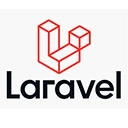Laravel's built-in validation system provides an array of useful rules for validating user input, but sometimes you may need custom validation rules to suit your application's unique requirements. In this beginner's guide, we'll explore how to create and use custom validation rules in Laravel.
1. Creating a Custom Validation Rule
Start by creating a custom validation rule. Laravel makes this process simple. You can use the `make:rule` Artisan command to generate a new rule class:
php artisan make:rule CustomRule
This will create a new rule class in the `app/Rules` directory.
2. Implementing the Validation Rule
Inside the generated `CustomRule` class, implement the rule logic in the `passes` method. This method should return `true` if the validation passes and `false` if it fails:
public function passes($attribute, $value)
{
// Your validation logic here
return $value % 2 === 0;
}
3. Custom Validation Error Message
Define a custom error message in the `message` method of the rule class to provide a clear error message when the validation fails:
public function message()
{
return 'The :attribute must be an even number.';
}
4. Using the Custom Rule
You can use your custom rule in a validation request or within a controller. For example:
public function store(Request $request)
{
$request->validate([
'number' => ['required', new CustomRule],
]);
// The validation has passed
}
5. Extending Custom Rules
Laravel allows you to extend custom rules to reuse and share your validation logic. This is especially useful when you have complex validation requirements across your application.
6. Conclusion
Creating custom validation rules in Laravel empowers you to tailor your application's validation to your specific needs. Whether you need to validate custom date formats, complex password rules, or unique input criteria, custom rules are a versatile tool to ensure your application's data integrity.
For further learning, refer to the official Laravel documentation to explore advanced validation topics, including customizing validation error messages and creating more complex custom rules for your application.

